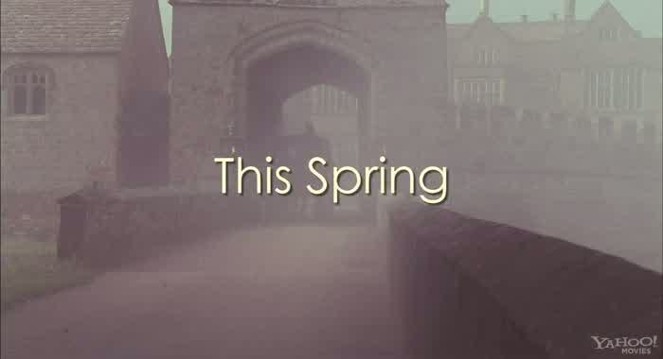Ohjaus:
Cary Joji FukunagaKäsikirjoitus:
Moira BuffiniKuvaus:
Adriano GoldmanSävellys:
Dario MarianelliNäyttelijät:
Mia Wasikowska, Michael Fassbender, Judi Dench, Jamie Bell, Su Elliot, Holliday Grainger, Tamzin Merchant, Amelia Clarkson, Craig Roberts (lisää)Suoratoistopalvelut (3)
Juonikuvaukset(1)
Kun orvoksi jäänyt kotiopettajatar Jane Eyre (Wasikowska) saapuu valtavaan Thornfield Halliin, hänen äveriäs työnantajansa Rochester (Fassbender) herättää hänen mielenkiintonsa. Miehen synkät mielialat ja oudot tapahtumat talossa johtavat Janen hirvittävän salaisuuden jäljille, jonka Rochester oli toivonut voivansa salata. (SF Film Fin.)
(lisää)Videot (2)
Arvostelut (11)
Extreme romanticism via an atmosphere à la Gothic horror. Simply gestures instead of speeches. Courting by the fireplace through verbal exchanges that make Nadal versus Federer a boring watch. It’s hopes of being movie theatre experience of the year are dashed by the emotionally chilly ending where gestures gave way to speeches and other maladies very familiar in most adaptations of the classics of Romanticism.
()
Old-fashioned English romantic dramas aren’t the kind of genre that I would go after, but the good reviews drew me to the cinema (it’s not that there are that many good films this summer to let this one pass :-D), and I don’t regret it. It’s a brilliantly made film that managed to hold my attention. Rather than romantic, as in romance, I felt it was more romantic as in romanticism, because the romance itself doesn’t work so well, but the gloomy atmosphere of the English countryside was wonderful. Fukunaga could have a go at horror for his next film, when it comes to scares, he managed some interesting things in those scenes.
()
As a viewer and reader who has always somehow avoided Jane Eyre, I couldn't have chosen a better version for our first meeting. However, this satisfied realization was born quite heavily. After half an hour of the main heroine's suffering almost in the style of Oliver Twist, I was shaking my head at the dysfunctionality of the events on the screen and the contradictory atmosphere that wouldn't let me properly engage in the story. But as soon as Michael Fassbender enters, the 19th century image takes on completely different colors. Whether it's the colorful reflections of twisted romance and captivating small dialogues or the darker shades in suggestive scenes of the castle's mystery. And when I reached the point and the perfectly fitting ending, I felt relieved. The heart's melody plays loudly enough, Fassbender slowly conquers the wide Hollywood scene, and there is a new (and very resonating) piece of complex historical romance in the world.
()
A triumph of classicism, filmmaking and romantic proprieties. If I didn't know the actors, I'd have trouble dating the movie. Anyway, it's because of the actors and some wonderful romanticizing compositions that Jane Eyre is worth it. I'm just a little sorry that Fukunaga didn't keep it for his retirement and boldly did not go back to where he left off with Sin Nombre.
()
- I dream. - Awaken then. Jane Eyre is a mature synthesis of two “women’s genres”: melodrama and gothic horror. The narrative complies with the intentions of feminist discourse, taking into account the numerous restrictions that 19th-century women had to overcome, while not hyperbolising them to such an extent that the film would become another hopeless story of female suffering. The protagonist is self-confident and conscious of her abilities, and her calm dialogues with her “master” do not correspond to the traditionally depicted relationship between superiority and subordination. Cautiously being in love without fully giving herself over to her partner blunts the sentimental edges of the melodramatic level and makes it impossible to watch Jane Eyre as a straightforward tear-jerker. Fukunaga’s adaptation uses the classic novel to pose topical questions without doggedly striving for modernity in any other aspects of the film – cinematography, production design, the characters’ vocabulary. In other words, the film’s creators interpret the original novel as people instructed by developments in thinking about the social position of women, and as such logically project into it what Brontë could only consider to be a utopia in her time. Thanks to that, the film achieves an extraordinary balance between the modern and the classic. 85%
()



Mainos